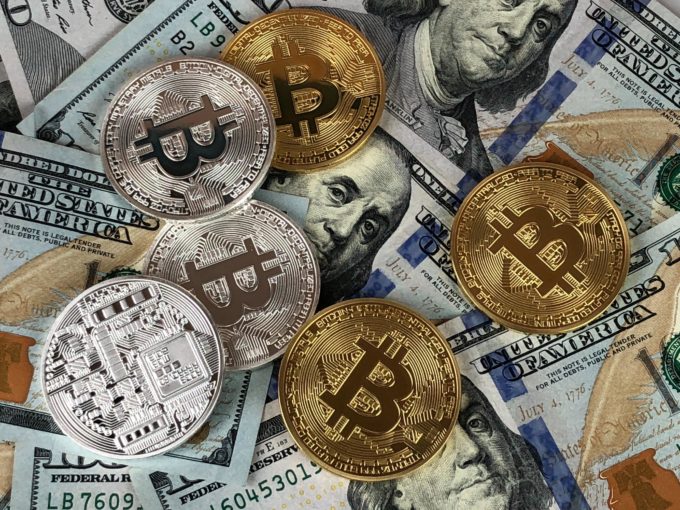
Digital Commodities Consumer Protection Act of 2022: A Controversial Effort Caught in the Crossfire of the FTX Collapse
By Chu Chen - Edited by Cindy Kuang
In only one week, FTX went from the world's second-biggest cryptocurrency exchange to an epic bankruptcy. As its fallout sweeps across the entire crypto industry, the sudden implosion of FTX reveals a market that has long been deemed a regulatory wild west and prospered only in the vacuum of legislation.
This crisis draws people’s attention to a recent bill allegedly backed by Sam Bankman-Fried, FTX’s founder. On August 3, 2022, Sen. Debbie Stabenow (D-MI) and Sen. John Boozman (R-AR) introduced the Digital Commodities Consumer Protection Act of 2022 (DCCPA) to the Senate Agriculture Committee. As the latest effort among a series of crypto bills floating around Congress, the DCCPA seeks to create a comprehensive supervisory regime centered on a newly defined term of “digital commodity.” In the process, it will build up substantial oversight over the cryptocurrency industry surrounding the Commodity Futures Trading Commission (CFTC).
Of all the heated debates in regulating crypto, sitting in the spotlight might be the ongoing dispute between the CFTC and the Securities and Exchange Commission (SEC) over the role of “crypto spot regulator.” The DCCPA, however, does not address this issue with further clarity. The bill coins a new term for cryptocurrencies, calling them “digital commodities,” meaning “fungible digital form[s] of personal property that can be possessed and transferred person-to-person without necessary reliance on an intermediary.” Notably, the DCCPA explicitly excludes securities from digital commodities. This exclusive approach may cause substantial ambiguity and uncertainty in identifying the jurisdiction of the DCCPA, since whether a product may constitute security is largely up to the discretion of the SEC through its application of the Howey test. As defined by the Supreme Court’s seminal opinion, a security under the Howey test entails (1) an investment of money; (2) in a common enterprise; (3) with the reasonable expectation of profits; (4) derived solely from the efforts of others. Any cryptocurrency that satisfies each of these four prongs is a security, and unless an exemption is available, the issuer of such a token is obliged to comply with the strict SEC requirements related to security offerings. Notably, the DCCPA explicitly provides that a digital commodity platform registered with the CFTC may also be registered with the SEC. That is to say, while cryptocurrencies are recognized as either digital commodities or securities, it might be possible for a platform to operate both in parallel.
Unlike other recent proposals that largely rely on existing supervisory regimes, the DCCPA proposes creating a new framework on top of digital commodities. This new framework includes CFTC registration for any digital commodity brokers, custodians, dealers, and trading facilities, or collectively, the “digital commodity platforms.” For digital commodity platforms, registration under the DCCPA is mandatory, and a failure in compliance would be taken as a violation of the Commodity Exchange Act (CEA). To stay registered, digital commodity platforms must further comply with “core principles” on an ongoing basis. These principles touch upon many aspects of digital commodity platforms’ daily operations, from maintaining activity records, running conflict checks, segregating customer property, establishing risk identification programs, emergency procedures, and transparent governance arrangements to designating a chief compliance officer and producing compliance policies and annual compliance reports. Being a federal effort, the DCCPA includes a preemption provision, claiming to preempt any registration requirements under State laws relating to money transmission, virtual currency, and commodity brokers. It also requires all digital commodity brokers, custodians, and dealers to establish and join a registered futures association, which would be charged with certain registration functions under the CFTC’s delegation.
As for enforcement, the DCCPA allows the CFTC to draw on its existing tool kit for regulating the futures contracts market and extend them to digital commodity trades. These tools include, for example, enforcement authority related to CEA’s prohibitions on wash trades, spoofing, and other fraudulent devices and schemes. Equally important to the enforcement is a proposed arrangement for registration fees. In requiring the CFTC to assess and collect fees for registering digital commodity platforms and conducting oversight of digital commodity trades, this oversight model is designed to be self-funding.
Unsurprisingly, the DCCPA faces backlashes on many fronts. Crypto companies have criticized the narrowness of the definition for “digital commodity” and its inadequacy in clarifying the jurisdictions of the CFTC and SEC. Many businesses are also concerned about an unintended killing effect on decentralized finance (DeFi), which offers financial instruments without relying on intermediaries, and is, by definition, unable to meet the CFTC registration requirements. For some state regulators, the preemption provision imposes unreasonable restrictions on their authority to protect investors and promote responsible capital formation. Furthermore, these same state regulators argue that the provision would be a gigantic step backward for entrepreneurs, investors, and capitalism generally. Perhaps the most interesting reactions come from within the federal government itself. On August 2, 2022, one day before the DCCPA’s introduction, SEC Chairman Gary Gensler declared war against “the Wild West of crypto trading.” Following the FTX implosion, Mr. Gensler reportedly addressed the DCCPA as too light-tough. Meanwhile, Sen. Elizabeth Warren (D-MA), sitting in both the Senate Banking Committee and the Senate Finance Committee, also urged for a “comprehensive” digital currency bill covering consumer protections, anti-money laundering rules, and climate safeguards for crypto mining, which falls into her purview.
The DCCPA is facing additional scrutiny in the wake of FTX’s collapse. While Sen. Debbie Stabenow (D-MI) and Sen. John Boozman (R-AR) remain committed to advancing a final version of the DCCPA, it is unclear whether legislators will support and pass the bill.